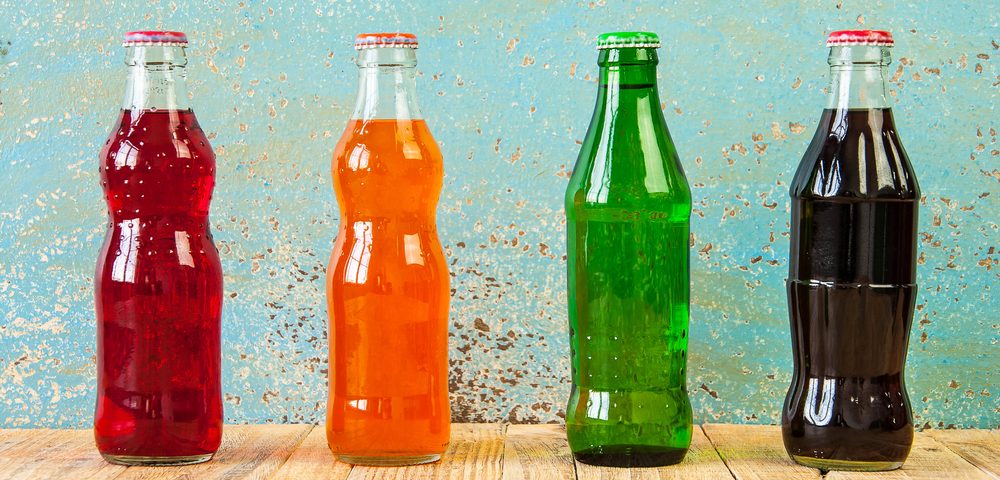Age may play a role when considering the link between cancer and sugar-sweetened beverages, a new LSU Health New Orleans study found, suggesting that intervention programs aiming to reduce consumption of added sugar should be focused on younger age groups.
The study, “Sugar intake from sugar-sweetened beverage among cancer and non-cancer individuals: the NHANES study,” published in the journal Translational Cancer Research, also reveals that people from lower socio-economic status and those who are cervical cancer survivors are also more likely to consume higher amounts of sugar-sweetened beverages.
Estimates indicate approximately 14.5 million cancer survivors in the United States, with evidence showing that health-related risk behaviors, including tobacco and alcohol use, physical activity, diet, and weight control may have a health impact in cancer survivors.
Studies have also shown that sugar intake or sugar-sweetened beverage consumption from soda, fruit drinks, punches, sports drinks, tea, and other beverages that contain added caloric sweeteners is linked with a number of diseases. Those include obesity, diabetes, cardio-metabolic diseases, and some cancers such as pancreatic and endometrial cancer. Risk of colon cancer recurrence and mortality among cancer survivors also seems be associated with sugar-sweetened beverages.
As more people are surviving cancer because of improvements in treatment and health care, sugar-sweetened beverage consumption among cancer survivors is becoming an increasingly important risk factor.
“The objective of this study was to closely evaluate the risk factors of sugar consumption from sugar-sweetened beverages among cancer survivors and people not diagnosed with cancer, and to our knowledge, no other studies have examined sugar-sweetened beverage intake in cancer survivors,” Melinda Sothern, PhD, professor of public health at LSU Health New Orleans and the study’s senior author, said in a news release.
To evaluate the impact of cancer status and other risk factors on sugar intake from sugar-sweetened beverages, Tung-Sung Tseng and colleagues at LSU Health New Orleans School of Public Health analyzed data from 22,182 adults, 20 years old or older, using National Health and Nutrition Examination Survey (NHANES) 2003–2012 records.
NHANES is a representative survey designed for assessing health and nutritional status of the resident civilian non-institutionalized United States population.
The beverages considered in the survey were sodas, sweetened fruit juices, fruit-flavored drinks, energy drinks, sport drinks, sweetened teas and coffees, and other sugar sweetened drinks. The survey also assessed participants’ cancer history, smoking history, obesity, age, gender, race, education, and poverty/income ratio.
Fifty-seven percent of all survey participants had high sugar intake from sugar-sweetened drinks. The results further showed that people without cancer consumed more sugar-sweetened beverages than cancer survivors (16.7 percent versus 7.7 percent). However, after accounting for other factors such as gender and older age, the result was not statistically significant.
People who had high sugar intake from sugar-sweetened drinks (80 grams or more per day) were more likely to be younger, male, African-American, obese, and current smokers. In addition, those with low incomes and education levels at or below high school, were also more likely to have high sugar intake from the sugary beverages.
An important finding was that cervix cancer survivors had much higher sugar intake from sugar-sweetened beverages (60 grams a day) than survivors of other cancers, who consumed about 30-40 grams per day.
“Although consuming added sugar is not recommended, people are not usually aware of how much sugar they get from sugar-sweetened beverages,” said lead author Tung-Sung Tseng, DrPH, associate professor of Public Health at LSU Health New Orleans. “The American Heart Association recommends a consumption goal of no more than 450 kilocalories (kcal) of sugar-sweetened beverages or fewer than three 12-ounce cans of soda per week.”
The study findings indicate that the consumption of sugar-sweetened beverages depends on the type of cancers and may be associated with age. The lower consumption of these beverages in cancer survivors was primarily due to age distributions among cancer survivors and non-cancer participants — cancer survivors were older, and thus, less likely to consume such beverages.
Researchers suggested that intervention of reducing sugar consumption from sugar-sweetened beverages should be conducted for both non-cancer individuals and cancer survivors in communities and the medical care system. The team placed high priority on developing programs that reduce consumption of the drinks among cervical cancer survivors, especially those in younger age groups.

